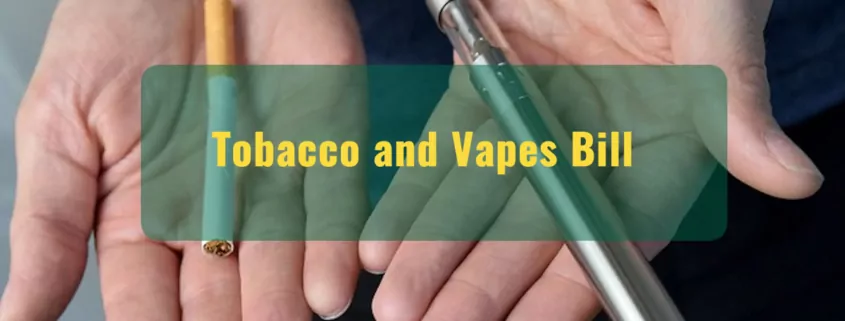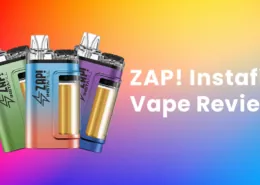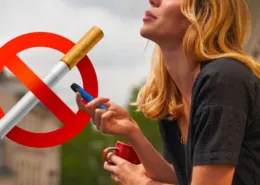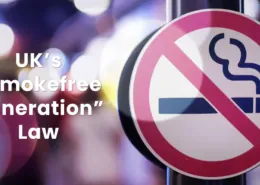The Tobacco and Vapes Bill: What It Means for Vapers and Retailers
The United Kingdom Parliament has passed the Tobacco and Vapes Bill with an overwhelming majority of 415 votes in favor and only 47 against. This landmark legislation introduces comprehensive changes to the vaping landscape, targeting youth vaping, environmental concerns, and retail regulation. The bill’s passage marks a significant shift in how vaping is regulated in the UK, and it is crucial for vapers and retailers to understand the key provisions and their potential impact.
Key Changes for Vapers
- Ban on Disposable Vapes:
Starting June 2025, the sale of disposable vapes will be illegal across England, Scotland, and Wales. This decision follows growing environmental and health concerns over single-use vape devices. Adult vapers who rely on disposables for convenience will need to transition to refillable alternatives, such as pod systems and open-tank devices, which offer greater long-term value and significantly reduce waste. - Youth Vaping Controls:
The bill introduces stricter regulations aimed at curbing youth vaping. These include banning child-appealing branding, free vape distribution, and vape vending machines. Advertising restrictions will also extend to zero-nicotine products. The measures aim to create clearer distinctions between products meant for adult harm reduction and those potentially attracting underage users. - Potential Accessibility Concerns:
The new retail licensing scheme (discussed in the retailer section) could lead to reduced vape shop accessibility, particularly in rural areas. The licensing requirements may result in fewer vape retailers, especially independent shops, which could inconvenience some adult vapers. However, the goal is to create a safer, more regulated market that prioritizes adult harm reduction while preventing youth access.
Key Changes for Retailers
- Mandatory Retail Licensing:
The bill introduces a mandatory retail licensing scheme for all vape shops. Retailers will be required to register and adhere to stricter rules aimed at cracking down on illicit sales and underage access. Failure to comply with the new regulations could result in penalties and potential license revocation. - Proximity Restrictions:
The licensing system may impose restrictions on the proximity of vape retailers to other outlets. These density limits could potentially favor larger chains over independent shops, particularly in high-demand areas. Retailers will need to carefully assess their shop locations and consider how these restrictions might impact their ability to maintain or expand their presence. - Inventory Adjustments:
With the impending disposable vape ban, retailers will need to shift their focus toward refillable devices and accessories. This includes promoting starter kits and pod systems as alternatives for disposable users. Additionally, retailers must ensure that their product range complies with the new branding and advertising rules, avoiding child-appealing designs and flavors. - Administrative and Financial Burdens:
The licensing process will introduce new administrative costs for retailers. They will need to budget for license application and maintenance fees, which could strain smaller businesses with tighter profit margins. Retailers may need to reassess their business models to account for these additional expenses.
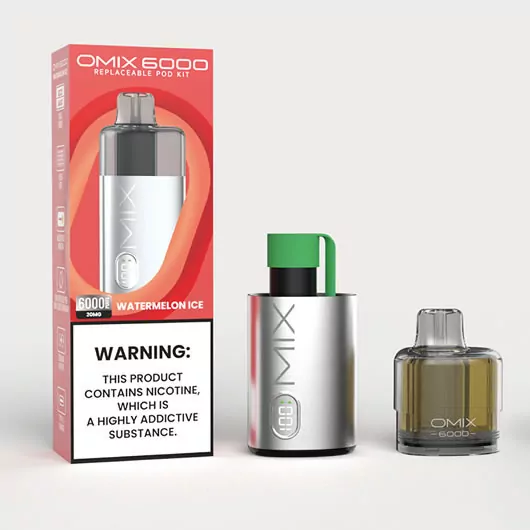
Ecigator OMIX 6000 (2+10ml) Pod Kit
The Ecigator OMIX 6000 is designed to be replaceable and rechargeable, and the ariflow is adjustable.
The kit comes with a 2ml prefilled pod and a 10ml E-liquid container, delivering up to 6000 puffs.
With the mesh coil technology, the OMIX 6000 will produces a consistent pure taste to ensure a superior vaping experience.
Next Steps for Stakeholders
- Vapers:
Start exploring refillable device options and be prepared for potential shop closures in your area. Stay informed about the upcoming changes and be open to trying new products that align with the new regulations. - Retailers:
Familiarize yourself with the licensing requirements and take proactive steps to ensure timely compliance. Evaluate your shop location and product mix to mitigate potential proximity risks and adapt to the disposable ban. - Manufacturers:
Focus on developing compliant, sustainable vaping products that cater to adult users. Innovate with refillable devices and eco-friendly designs that meet the evolving needs of vapers and regulators. - Policymakers and Public Health Bodies:
Provide clear guidance and support to aid the industry in adapting to these changes. Engage in open dialogue with stakeholders to ensure a smooth transition and address any unintended consequences.
Conclusion
The Tobacco and Vapes Bill represents a watershed moment for the UK vaping industry. While the changes may present challenges for vapers and retailers alike, the ultimate goal is to create a more responsible, adult-focused vaping ecosystem that balances harm reduction with youth prevention. By staying informed, adapting to the new requirements, and working collaboratively, the industry can successfully navigate this new landscape and build a sustainable future for vaping in the UK.
- Russia’s Vape Market: Inside the Battle for Control - August 8, 2025
- Brazil: Paraná Bill to Add Vaping to “No Smoking” Signs - August 8, 2025
- Celebrate with EightVape: 10 Lucky Winners Get Free Orders or $100 Gift Cards - August 8, 2025

